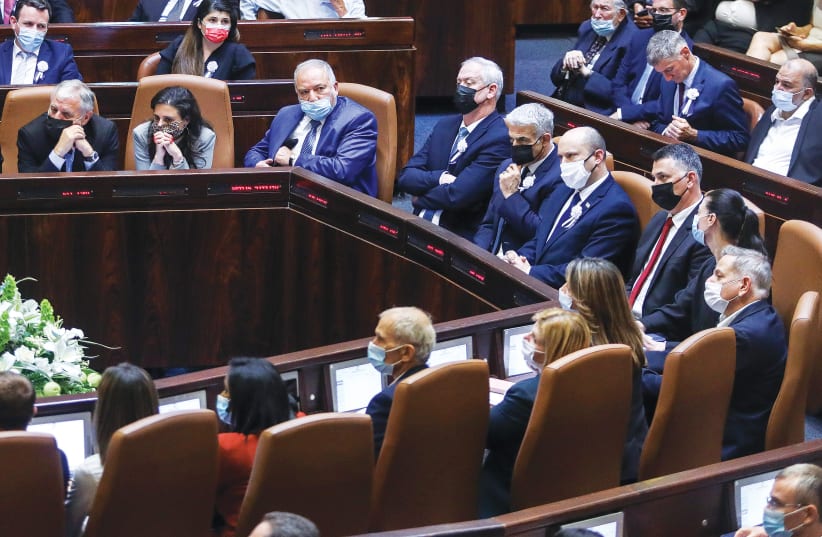Traditionally, key committees like the Knesset committee assignments and the committees on finance and on law give an edge to the coalition in representation, but a small proportional edge.
In contrast, the current coalition gave itself a three-seat advantage for the Arrangements Committee and a two-seat advantage for each of the powerful finance, law and social welfare committees.
To balance out this unusual advantage in those committees, the coalition gave the opposition control of the State Control, Advancement of Women, Science and Technology and Absorption and Diaspora Affairs committees, including larger majorities than is usual on some of those committees.
Since that decision, the opposition as a whole has boycotted much of the Knesset’s committee work.
Further, the two parties’ petitions argued that the power of the committees in question were not comparable, and that the current committee setup constitutes “a severe harm to the substantive values underlying the foundations of the Israeli system of government.”
Essentially, they said that proportional representation of opposition MKs on key committees is the only way to ensure checks and balances against power grabs by the coalition.
Six MKs signed the petitions, including the Likud’s David Biton, Miri Regev, Keti Shitrit, Fateen Mulla and Shas’s Moshe Arbel and Michael Malkieli.
The petition also cited the Knesset legal adviser as opposing the coalition’s ratio of its members on key committees versus opposition members, and as declaring the move legally problematic.
At the same time, it was unclear whether the Knesset legal adviser would have gone as far as to declare the move illegal, given that aspects of the Knesset are run based on tradition, but without explicit legal requirements.
Regarding altering aspects of the Knesset setup, the Likud and Shas, while in power, tried to maintain the appearance of respecting traditions in the same manner the coalition is trying to do, even as they also departed from tradition.
During their years in power, the Likud supported giving a key seat, supposedly reserved for the opposition, on the Judicial Selection Committee to a right-wing opposition party which actually supported their viewpoint.
Though this technically fulfilled the idea of having an opposition member on the committee, substantively that idea had always been about ensuring diversity of viewpoints by giving the opposition seat to a major political party that had views different from the coalition’s.
Further, once that opposition party later joined the coalition, the seat was not given over to a different opposition party.
This is one of the first times that the opposition Likud is turning to the High Court to hold back coalition moves in the Knesset after more than a decade of accusing the justices of being too interventionist in Knesset business.
However, the High Court has tended not to intervene unless it views an explicit law as being violated.
Similarly, many current members of the coalition have in the past accused the Likud of trampling on opposition rights when it was in power.
High Court Justice Uzi Vogelman ordered the coalition to respond in writing within 48 hours and committed to scheduling a hearing within 14 days.
